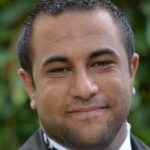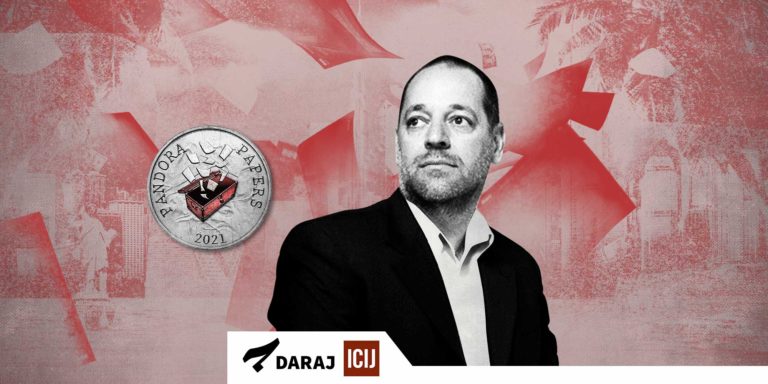Amal Abou Zeid is a man with many hats, which the Lebanese MP and businessman has used to weave an intrinsic network linking many parties. Born in Mlich near Jezzine in 1953, he studied, and established his first business in the UK; More companies followed in other countries, including Russia and Lebanon.
He is furthermore a founding member of the American Lebanese Chamber of Commerce and has long played an active role in the Maronite community.
In 2014, he Gebran Bassil appointed Abou Zeid as advisor for Lebanese Russian affairs within the Ministry of Foreign Affairs. He was also engaged in partnerships with businessmen affiliated with the Syrian regime, especially in the field of money transfers.
Recently, Abu Zeid prepared the visit of a Russian company to Lebanon, which presented huge projects, such as the reconstruction of the port of Beirut, the modernization of the port of Tripoli, the construction of several power plants, and the rehabilitation of the oil refineries in Zahrani and Tripoli.
In parallel with these visits, several press reports claimed that the newly created Russian company is nothing but a front for Russian businessmen involved with the Assad regime in Syria. This brings us back to Abu Zeid and his overlapping interests: Russian companies, the Aounist movement, the Syrian regime, and his long career in the field of money transfers.
The Agon Company
The Pandora Papers leaked that Abou Zeid was a co-founder and director of the Agon Holding S.A, a company that was registered in the Virgin Islands on June 1, 2007, and, according to the minutes signed by the firm’s three directors, dissolved on February 27, 2009. In other words, the company only operated for one year and eight months. During that period, there was no change in terms of partners, shareholders and management.
The fact that Agon was established in this way – in a tax haven, unsupervised by the Lebanese financial authorities, for such a short period – suggests it was merely a front for certain short-term operations the partners wanted to conduct without oversight. Questioning the reason for establishing the company in such a way leads us to look at the list of shareholders, the relationships and distribution of shares between them. According to company records, Agon’s capital amounted to $4 million divided over one million shares.
The distribution of shares is as follows:
Amal Abou Zeid: 539,980 shares (54%)
Toufic Mouawad: 180,000 shares (18%)
Mouawad is a lawyer and Abu Zeid’s partner in the Lebanese firm Online Money Transfer (OMT). He is in fact Chairman of the Board. In the past, he was also Vice-President of the Maronite League. Mouawad and Abou Zeid co-founded OMT in 1998, during Syria’s hegemony over Lebanon. They obtained a license from the Lebanese Central Bank (BDL) to carry out internal and external money transfers.
They still own the company in equal parts.


Wadah Hanna Al-Shaer: 80,000 shares (8%)
Al Shaer, a lawyer and a businessman, occupies a leading position in the Marada movement. His name appears, both as a shareholder and administrator, in dozens of Lebanese companies operating in various fields, including: real estate, tourism, communication and hospitality. Among these companies, his name also appears as a partner with Mouawad and Abu Zeid in the firm ULTIMATE OVERSEAS, and it is difficult to find any public activity behind it.
Nadim Hakim: 200,000 shares (20%)
Hakim is a businessman, whose name is mainly known from the world of sports, especially basketball. He used to be president of Hekmeh BC, while today he presides over Beirut BC. Unlike Al-Shaer, Abu Zeid and Mouawad, it is not clear if Hakim is involved in other business activities.
Mounir Abdul Sattar Alameddine: 20 shares
Alameddine owns only a symbolic percentage of the company’s one million shares. Usually, such a symbolic stake is handed to people whom the partners grant the right to sign on behalf of the company.
Signature and Management
The documents show that Agon partners Abou Zeid, Hakim and Alameddine are authorized to sign on behalf of the company. Any decision should be signed by two of the three partners. Thus, the existence of Alameddine is confirmed as a mere symbolic or formal partner, who was granted shares just to give him the right to sign in union with one of the two actual shareholders: Hakim and Abou Zeid.
Al-Shaer does not have the right to sign. His name appears as secretary in the company’s general assembly meetings, when all shareholders are invited to take basic decisions and grant powers to the managerial team. Abou Zeid, the majority shareholder, presided over these meetings.
The power to take “big decisions,” such as signing on behalf of the company to buy real estate or obtain mortgage loans, was limited to Abu Zeid and Hakim together, which indicates they are the ones who control the company’s strategic affairs.
Company Goal
It appears from the minutes of the general assembly meetings that after the company’s establishment, on October 5, 2007, to be precise, the partners granted the company the right to purchase the properties 5243/8 a farm and 5243/10/ a farm, and authorized it to get a bank loan or mortgage to secure them.
A search for the above-mentioned properties shows that the main property is 5243/Al Mazraa, within which 5243/8 and 5243/10 are found, is located on Sami El Solh Street in Beirut’s Badaro district. It is the building in which the OMT main center, owned by Abu Zeid and Mouawad, is located.
This is an indication that there was a relationship between the company established in the Virgin Islands in June 2007 and OMT. At least, in terms of this real estate transaction. It triggers questions. Was one aim of the company registered in the Virgin Islands to conduct real estate transactions on behalf of OMT? What was the purpose of having the property owned by a foreign company?
What is the relationship between Al-Shaer and Mouawad and Abu Zaid’s activities in the field of financial transfers? Was the goal to transfer the property’s ownership to a foreign company at a certain price, before selling it to the Lebanese company at a higher price in order to somehow transfer liquidity abroad?
It is hard to trace the banking operations related to this real estate transaction, given Lebanon’s banking secrecy. But this type of real estate transactions, passed through a front or temporary company registered in a distant tax haven, is often related to parallel financial procedures aimed at circumventing rules, restrictions and oversight.
Syrian Allies
What is the relationship between Al-Shaer and the world of money transfers and specifically with Abou Zeid and Toufic Mouawad?
In the Paradise Papers, Al-Shaer appears as a partner in the SAL Cards company, alongside Mohamed Afandar, general manager of the Western Union money transfer company in Syria, which is affiliated with the Assad regime and stands accused of handing over data ever since the start of the revolution. SAL Cards was established in 2004, a few months before the Syrian army withdrew from Lebanon.
In 2007, Al-Shaer and Affandar founded DES SAL OFFSHORE with the same partners, Abu Zeid and Mouawad, who – with Al Shaer – during the exact same period established Agon. In addition, four months after the start of the 2011 Syrian revolution, Afandar, along with Abou Zeid and Mouawad, established yet another money transferring firm in Beirut: M-Payments Venture Holding S.A.L.
It should be noted that a holding company is an umbrella or parent firm that does not sell or produce anything, but acquires and holds a controlling stock in other companies, under many different names, that do. Often it is a set-up that allows for concealing activities and/ or owners.
Abu Zeid and Mouawad were part of a group of Lebanese businessmen who rushed to partner with Avandar, with whom Abou Zeid and Mouawad shared a specialization: money transfers. The facts mentioned here cannot establish the exact nature of Agon’s operations, but do lead us to ask: why register a company in a tax heaven and dissolve it after a period of only one year and eight months?
Read Also:







